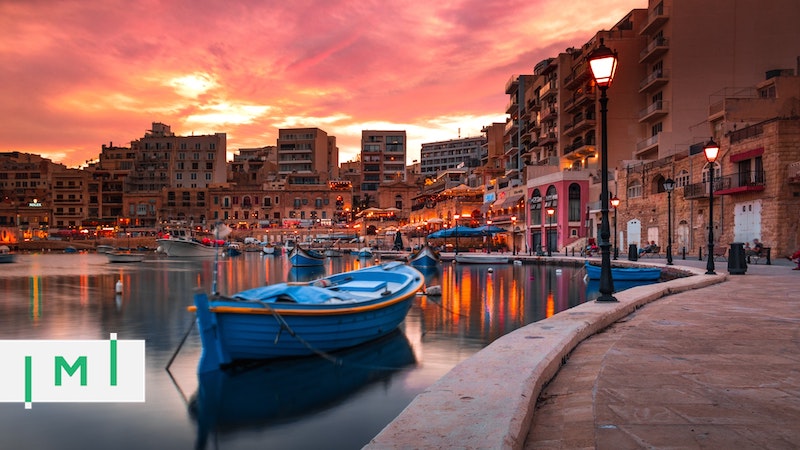Why Malta’s IIP and RVP Should Allow Participants to Own Investments Indirectly, Through Trusts or Foundations
Background: Real estate’s role in the Maltese economy
The real estate industry is a main contributor to Malta’s economy, accounting for 7.5% of Malta’s GDP in 2018 alone. Malta’s GDP for 2019 registered an increase of 6.8% when compared to 2018, with the real estate market continuing to influence this growth trend.
The demand for quality real estate in Malta, particularly in specific zip codes, saw a steady increase over the past five years as Malta continued to attract foreigners to the country to contribute their skills or technical knowledge or experience to the labour market, particularly in the gaming and financial services sectors.
The spike in demand for real estate in Malta, in turn, impacted the construction industry and inflated real estate prices. While demand and supply considerations played a key role, there were various factors behind such an increase in the price of property in Malta, including the pursuit of balanced and varied investment portfolios and higher-yielding assets by savvy investors. Immovable property in Malta is generally seen as an investment with a good potential for a sound return, and the Maltese population still prefers to own, rather than rent property, continuing to bolster the industry.
The Director General of the National Statistics Office has established the immovable property price index at 199.38 as at 1st of April 2020. This represents an increase of 5.6% from 2019.
With the advent of the COVID-19 pandemic, there was a lot of speculation that the property market might experience a sudden and catastrophic collapse in Malta. Even though, admittedly, the property market was impacted negatively, with people finding it difficult to pay rent whilst others had to leave the country on being made redundant when hotels and bars closed, it is still considered to be doing well overall. One might even say that the market remained steady, perhaps partly due to the introduction of an advantageous stamp duty rate afforded to buyers (1.5% instead of 5%) coupled with a decrease in tax on capital gain payable by sellers (set at 5% instead of 8%).
Other key factors which contributed to the steady demand for immovable property in Malta include a part exemption from payment of stamp duty for first time buyers, as well as the mandatory requirement for foreigners applying under any residence or citizenship by investment programmes that Malta has to offer, particularly, The Malta Individual Investor Programme (IIP) or The Malta Residence and Visa Programme (MRVP), to own or rent immovable property in Malta.
Both programmes attracted a number of HNWIs to the island who not only invested in the programmes, but also invested in other business ventures which in turn contributed to Malta’s economy.
It should here be said that while the Maltese IIP has reached its limit of 1,800 applications cap, the industry is eagerly awaiting the launch of the new programme, which is set to be more focused on “residency which may lead to citizenship”, rather than the investment per se, but which will still require the purchase or lease of immovable property in Malta as one of its essential requirements.
On the other hand, the MRVP currently requires applicants to acquire a residential property worth at least €320,000 or rent a residential property for at least €12,000 annually, continuing to boost the real estate business in Malta.
Small changes in MRVP/MIIP rules could propel growth for trusts and private client industries
As trust lawyers servicing private clients, we cannot but comment on the potential of growing the trust and private clients industry in Malta if the Programmes allowed for the investment to not necessarily be in the applicant’s own name, as is currently the case, but also allowed the investment to be held in Trust or by a Private Foundation or a Family Trust Company, for the benefit of the applicant.
If Malta wants to position itself as a serious player in attracting HNWIs through RCBI programmes, why deny them the right to segregate and protect their investment migration assets, and include them in their wider estate planning? Why leave the possibility of segregating the asset using such vehicles to the discretion and approval of the authorities on a case-by-case basis, with consequential insecurities and delays that are off-putting to applicants?
Whilst having the applicant’s name on the purchase/rental deed confirms a genuine link with the Maltese islands, wouldn’t the same end be achieved if the investment was held by a Maltese Trustee of a Trust, or a Maltese Family Trust Company or a Private Foundation set up for the benefit of the applicant?
With such a sophisticated legal system of Trusts, Family Trust Companies, and Foundations that conceive of segregated cells in Malta – whereby each cell would have a particular purpose, assets, and beneficiaries distinct from the other cells within the same Foundation – denying applicants investing in Malta under RCBI programmes access to such solutions seems counter-intuitive.
We would welcome changes in this sense in the law, and the further establishment of Malta as a centre for excellence in financial services and RCBI programmes.
Davinia Cutajar is a corporate, trust, and relocation lawyer, who also has significant experience in property law and litigation. Prior to joining WH Partners she was managing partner of another Maltese law firm.
While her legal career started as a litigation lawyer with a well-respected law firm in Valletta, she later moved to corporate, trustee and compliance law, fulfilled the role of Money Laundering Reporting Officer and Compliance Officer for a corporate and trustee services in Malta, before being appointed as the Director responsible for the same industries within the same organisation.
At WH Partners, Davinia supports the continued development of the Corporate, Trusts, Foundation and Relocation practice areas and works closely with the Real Estate and Dispute Resolution practice groups of the firm.



